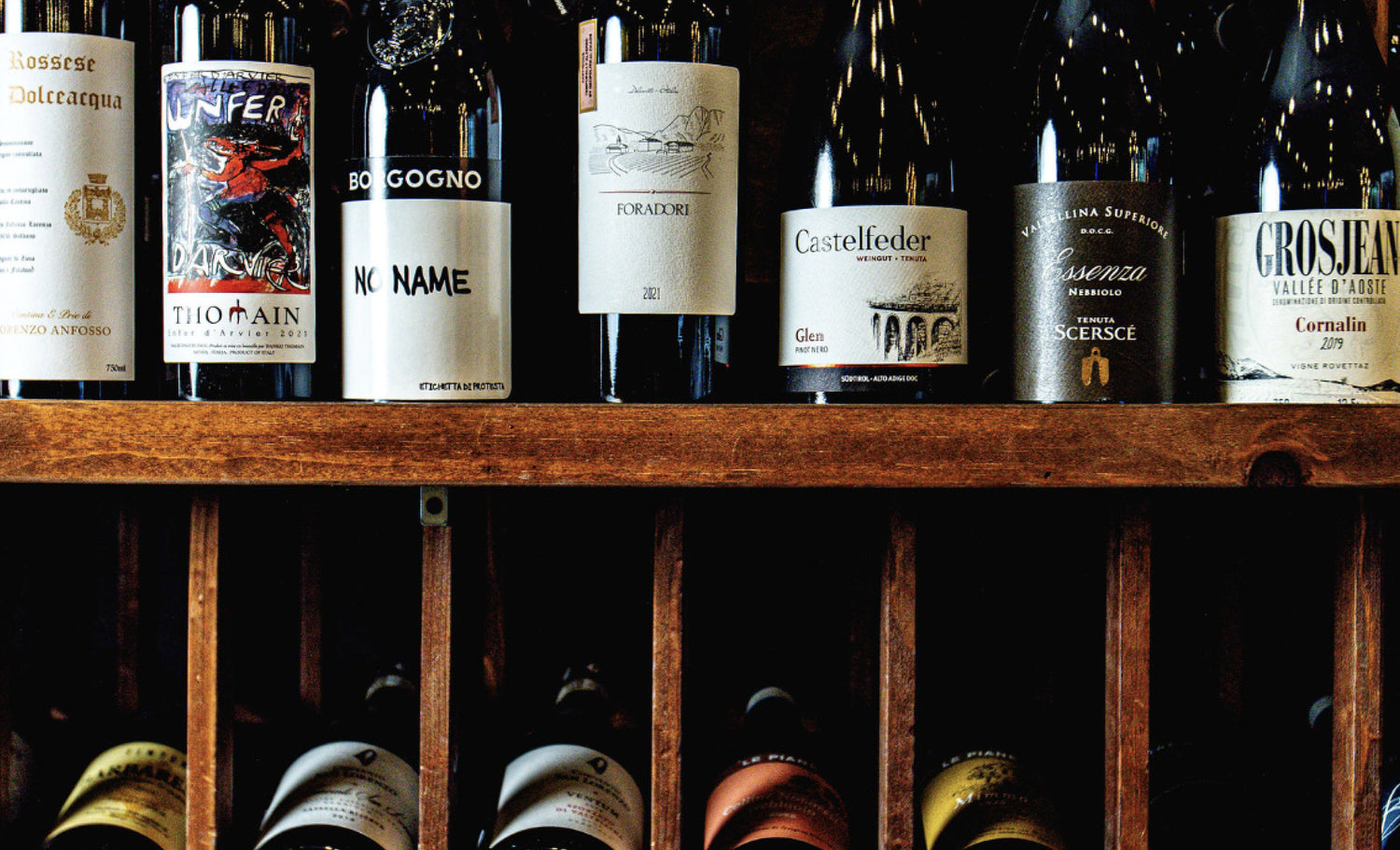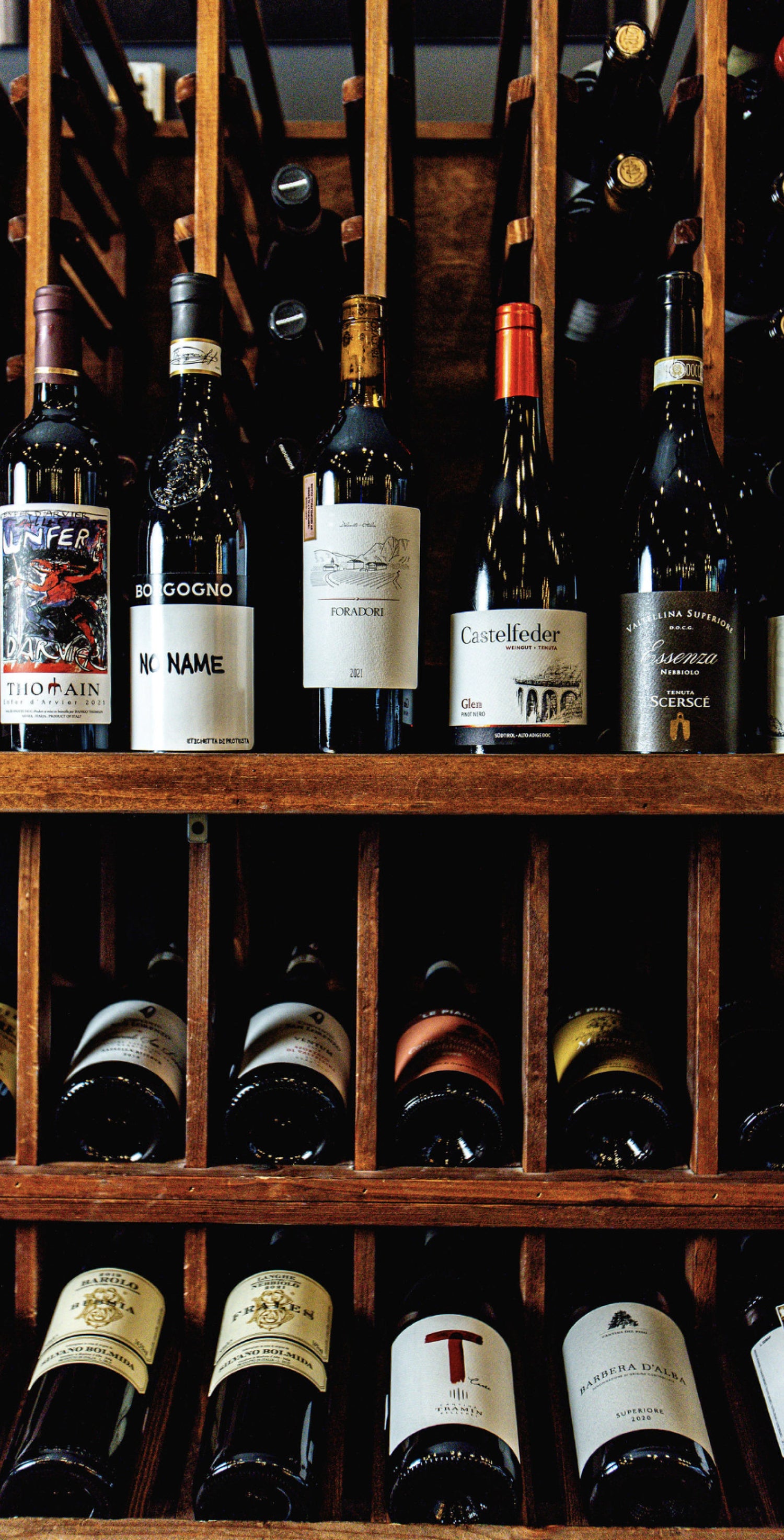From the Winery: A place where the earth, which turns red in the evening and is combed by the wind that arrives from the Iblei, leans on one side of a road: 1'SP68.”
It all started eighteen years ago in Fossa di Lupo. A magical place where the earth, which turns red in the evening and is combed by the wind that arrives from the Iblei, rests on one side on a road: the SP68.
A provincial road like many others, but with a special history. It was once made of stone, narrowed to little more than a path; three thousand years ago it connected Gela to Kamarina, as today it ran along the roads of Cerasuolo di Vittoria and from Caltagirone it continued to Catania and Lentini. There, squeezed between heaven and earth, the line of that road also marked the destiny of this company. The first hectare of land, next to the millstone of Fossa di Lupo, was followed by others. The company has also expanded into the districts of Bombolieri, Pettineo, Bastonaca, Santa Teresa, Serra d'Elia, Santa Margherita. A path that we have accompanied step by step.
We produce wines from about 30ha of vineyards, including Frappato, Nero d'Avola, Zibibbo, Albanello, Grillo, we cultivate 1ha of Coscia and Gentile pears, 10ha of Tumminia wheat, 16ha which we rotate between Tumminia wheat and Leguminosae, 15ha of olive groves secular trees of Tonda Iblea and Nocellara del Belice, half a hectare of citrus fruits, 1500 square meters of vegetable garden, carob trees and other fruit trees.
From season to season the earth speaks to us, listens to us, responds to us. Ours is a silent and authentic dialogue. This is why there cannot be "a formula", but convictions that arise from experience. Above all else, we believe in a respectful relationship with the land: a direct contact that transforms into profound knowledge. We believe that there is a balance, that of nature, to be respected in every gesture: from the birth of a vineyard to its cultivation, passing through the pruning which must be clean, clean, well branched up to the processing of the fruit.
A balance that can be summarized as follows: a good wine comes from a good grape.
Ours is a choice of biodiversity above all. We prefer to work the land by hand and only use grapes from healthy soils, without the use of pesticides, fungicides, herbicides, chemical or synthetic fertilisers. We consider the spontaneous essences that grow in the vineyard and help the soil to oxygenate and nourish itself as a treasure. To these we add mixtures of essences other than green manure which contribute to the development of organic matter and soil organisms. Leguminous plants, graminaceous plants, cruciferous plants which are buried in the spring. In the vineyard we seek
then to respect the spontaneous flora which represents a great resource. Hedges and bushes, the Mediterranean maquis, the wooded areas, and then again the olive trees of Tonda Iblae and Nocellara del Belice, to which we have added fruit trees, our vegetable garden and Tumminia wheat. We maintain biodiversity, respecting the natural balance of things. In the vineyard we keep the old clones of our native grapes, continuing to make mass selection and grafting in the field. In this way the vineyard is more resistant, more robust and carries within itself the texture of a past and the strength for its future. The harvesting is also done by hand. The grapes are selected first in the vineyard and then in the cellar, only in this way can we work the best, healthiest and most mature bunches. If the care of the vineyard is done carefully, the passage to the cellar becomes simpler and requires fewer interventions . By working healthy grapes, where the microbiological aspect is respected, the fermentations take place spontaneously with their own indigenous yeasts. We accompany the wine in its evolution in containers that respect its vitality. We want its diversity to emerge, which we consider a fundamental character, which we find in the tastings as well as depth.
From season to season the earth speaks to us, listens to us, responds to us. Ours is a silent and authentic dialogue. This is why there cannot be "a formula", but convictions that arise from experience. Above all else, we believe in a respectful relationship with the land: a direct contact that transforms into profound knowledge. We believe that there is a balance, that of nature, to be respected in every gesture: from the birth of a vineyard to its cultivation, passing through the pruning which must be clean, clean, well branched up to the processing of the fruit. A balance that can be summarized as follows: a good wine comes from a good grape.
Ours is a choice of biodiversity above all. We prefer to work the land by hand and only use grapes from healthy soils, without the use of pesticides, fungicides, herbicides, chemical or synthetic fertilisers. We consider the spontaneous essences that grow in the vineyard and help the soil to oxygenate and nourish itself as a treasure. To these we add mixtures of essences other than green manure which contribute to the development of organic matter and soil organisms. Leguminous plants, graminaceous plants, cruciferous plants which are buried in the spring. In the vineyard we seek then to respect the spontaneous flora which represents a great resource. Hedges and bushes, the Mediterranean maquis, the wooded areas, and then again the olive trees of Tonda Iblae and Nocellara del Belice, to which we have added fruit trees, our vegetable garden and Tumminia wheat. We maintain biodiversity, respecting the natural balance of things. In the vineyard we keep the old clones of our native grapes, continuing to make mass selection and grafting in the field. In this way the vineyard is more resistant, more robust and carries within itself the texture of a past and the strength for its future. The harvesting is also done by hand. The grapes are selected first in the vineyard and then in the cellar, only in this way can we work the best, healthiest and most mature bunches. If the care of the vineyard is done carefully, the passage to the cellar becomes simpler and requires fewer interventions . By working healthy grapes, where the microbiological aspect is respected, the fermentations take place spontaneously with their own indigenous yeasts. We accompany the wine in its evolution in containers that respect its vitality. We want its diversity to emerge, which we consider a fundamental character, which we find in the tastings as well as depth.
The two varieties are native to Sicily--Zibibbo is more widely known as Muscat of Alexandria--and are grown on red sand soils over limestone rock, with vines averaging 15 years old on several different estate sites. The vines are organically farmed and hand-harvested. The fruit is destemmed and co-fermented with native yeasts in concrete tanks and with a two-week skin maceration. The wine is aged in concrete tank for 8 months and bottled unfiltered.

 Shellfish
Shellfish
 Fish
Fish
 Soft Cheese
Soft Cheese


